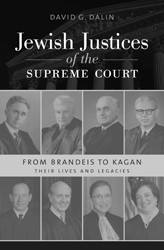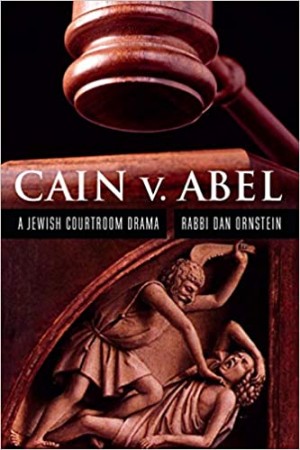By
– August 24, 2011
Selection of a new Supreme Court member over the past thirty years often demonstrated how fraught with controversy and competition between political parties the process is. Confirming the President’s nominee has been relatively unremarkable, yet it has been rare for a new Justice to develop so enduring a record that it influences the future. Louis D. Brandeis was an exception, for his legacy was based also on his distinguished extra-legal activities.
Melvin I. Urofsky’s admiration for Brandeis is evident in his comprehensive biography, Louis D. Brandeis: A Life. He describes the diverse elements in Brandeis’ life and career, as a major contributor to the development of both the theory and the practice of law, as a visionary labor arbitrator, as a trusted adviser to Presidents, as a respected Zionist leader, and of course as a Supreme Court Justice whose opinions and in particular his dissents became part of constitutional dialogue and often institutionalized as law. But it is “the high moral standards he demanded of those in public life,” and Brandeis’ highly moral personal behavior, that enlighten the reader.
Urofsky contrasts many of Brandeis’ activities and achievements with our experiences in the modern era. For example, in citing Brandeis’ letter to his brother to convey his feelings about President William Howard Taft (“The situation is now pretty tense and my disgust for the administration is now unbounded”), Urofsky adds, “In an era before the likes of Richard Nixon’s Watergate or George W. Bush’s claim of weapons of mass destruction in Iraq, Americans expected their presidents, if not to tell the truth, at least not to lie to them.” Yet he also cautions against interpreting his subject’s actions and opinions through contemporary eyes, since Brandeis “lived in a particular time and place.” Such a perspective helps the modern reader comprehend Brandeis, but Urofsky does more than merely depict his subject’s life experiences. He also analyzes significant cases which came before the court during the twenty-three years (1916 – 39) Brandeis served on the Supreme Court, and he further provide a fascinating view of how widely Brandeis influenced society in the chapters focused on “Extrajudicial Activities.”
One of the characteristics that distinguished Brandeis from his contemporaries was his ardent embrace of Zionism. In many ways, Urofsky argues, it was fortuitous that Brandeis lacked the religious fervor generally associated with Theodore Herzl’s vision of a Jewish homeland. The suspicion accorded to immigrant groups in America, the belief that their loyalty to the new homeland would be diluted, if not divided, could have been countered only by a leader whose commitment to America could not be questioned. Urofsky writes, “Only someone who shared the idealism of Zion without the religious components could have devised” the plan for Palestine as a “legally secured home.” And Urofsky reveals how Brandeis wedded pragmatism with idealism when he “secretly provided at least $45,000 (to Haganah) to purchase arms so that the settlers could defend themselves against Arab attacks.”
This is an engrossing book about a fascinating subject. More than a man whose long life reflects a period frozen in time, the Justice’s complexity and determination shaped his reputation as a citizen who is remembered for his contributions to the development of our society. And as a Jew, often facing social ostracism, Brandeis became an early “builder” of a self-governed haven for his people, while serving his native country with unambiguous loyalty. This alone makes him relevant in our day.
Melvin I. Urofsky’s admiration for Brandeis is evident in his comprehensive biography, Louis D. Brandeis: A Life. He describes the diverse elements in Brandeis’ life and career, as a major contributor to the development of both the theory and the practice of law, as a visionary labor arbitrator, as a trusted adviser to Presidents, as a respected Zionist leader, and of course as a Supreme Court Justice whose opinions and in particular his dissents became part of constitutional dialogue and often institutionalized as law. But it is “the high moral standards he demanded of those in public life,” and Brandeis’ highly moral personal behavior, that enlighten the reader.
Urofsky contrasts many of Brandeis’ activities and achievements with our experiences in the modern era. For example, in citing Brandeis’ letter to his brother to convey his feelings about President William Howard Taft (“The situation is now pretty tense and my disgust for the administration is now unbounded”), Urofsky adds, “In an era before the likes of Richard Nixon’s Watergate or George W. Bush’s claim of weapons of mass destruction in Iraq, Americans expected their presidents, if not to tell the truth, at least not to lie to them.” Yet he also cautions against interpreting his subject’s actions and opinions through contemporary eyes, since Brandeis “lived in a particular time and place.” Such a perspective helps the modern reader comprehend Brandeis, but Urofsky does more than merely depict his subject’s life experiences. He also analyzes significant cases which came before the court during the twenty-three years (1916 – 39) Brandeis served on the Supreme Court, and he further provide a fascinating view of how widely Brandeis influenced society in the chapters focused on “Extrajudicial Activities.”
One of the characteristics that distinguished Brandeis from his contemporaries was his ardent embrace of Zionism. In many ways, Urofsky argues, it was fortuitous that Brandeis lacked the religious fervor generally associated with Theodore Herzl’s vision of a Jewish homeland. The suspicion accorded to immigrant groups in America, the belief that their loyalty to the new homeland would be diluted, if not divided, could have been countered only by a leader whose commitment to America could not be questioned. Urofsky writes, “Only someone who shared the idealism of Zion without the religious components could have devised” the plan for Palestine as a “legally secured home.” And Urofsky reveals how Brandeis wedded pragmatism with idealism when he “secretly provided at least $45,000 (to Haganah) to purchase arms so that the settlers could defend themselves against Arab attacks.”
This is an engrossing book about a fascinating subject. More than a man whose long life reflects a period frozen in time, the Justice’s complexity and determination shaped his reputation as a citizen who is remembered for his contributions to the development of our society. And as a Jew, often facing social ostracism, Brandeis became an early “builder” of a self-governed haven for his people, while serving his native country with unambiguous loyalty. This alone makes him relevant in our day.
Noel Kriftcher was a professor and administrator at Polytechnic University, having previously served as Superintendent of New York City’s Brooklyn & Staten Island High Schools district.





